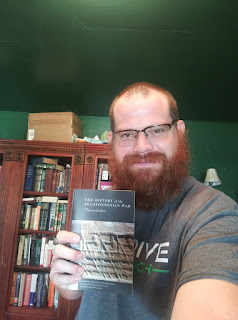Walker, Brett L. A
Concise History of Japan. Cambridge, UK: Cambridge University Press, 2015.
This is the second book review that I have posted on
this blog, so it is only appropriate I call it “A Limited Book Review Part II,”
for obvious reasons. If you are interested in my first Weaving Chronicle Book Review here is the link https://theweavingchronicle.blogspot.com/2017/01/a-limited-book-review-last-founding.html.
Shameless self-promotion finished, here is my limited book review.
A
Concise History of Japan is a fairly easy read, Brett Walker
moves the narrative along at a good clip. If you are looking for an easy
history to pad your book count. The pagination is only 304 pages and 15
chapters so it is a really easy read (chapter lengths average only about 20
pages per chapter).
The following quote sums up the philosophy of the
book. Focusing on the big picture of history or as the French say Longue Duree
(literally Long duration). This term Longue Duree is also a historical term
coined in the 1960s to describe the long view of history, attempting to see all
the complexities of history. The perspective has gained favor again in the 21st
century especially in the context of environmental history.
"...context of the
historical longue duree, one lesson of environmental history is that the
physical stage on which our past unfolds is unstable and dynamic, just like the
human societies it supports and sustains. But climate change threatens to amplify
that transformative process several fold.
That being said, this
book is not an environmental history per say. Rather, this book is what I
imagine history should look like in the twenty-first century, as ice sheets and
glaciers melt and sea levels and storm intensities rise." - Brett L.
Walker, A Concise History of Japan (xvii)
It's “not an environmental history”, but you can tell
that is what he wanted to write. My biggest complaint of the book is with its
organization of the book. The author will be going through the Empire and Imperial Democracy, 1905-1931
(Chapter 12) and then BAM! He gives three whole paragraphs on the
"legacy" of over fishing and whale hunting into the 21st
century (227-229). Call me old fashioned but if the chapter title says “1905-1931”
than you should focus on “1905-1931.” This bit would have been better suited
later in the book or maybe a complete reorganization to incorporate more environmental
history themes. As the book reads now,
it is as if the author copied and pasted some last minute additions into the
original manuscript. There are other instances where the organization goes
askew but this was by far the most noticeable.
There are some redundancies and I wish the author had
given more definitions, even if it was only in the glossary. I suppose defining
everything would have made it less concise and more introductory. These are my
only gripes about the book, I found it interesting and helpful. I was looking
for a quick history to bolster my understanding of Japanese history and this
was a good choice.








